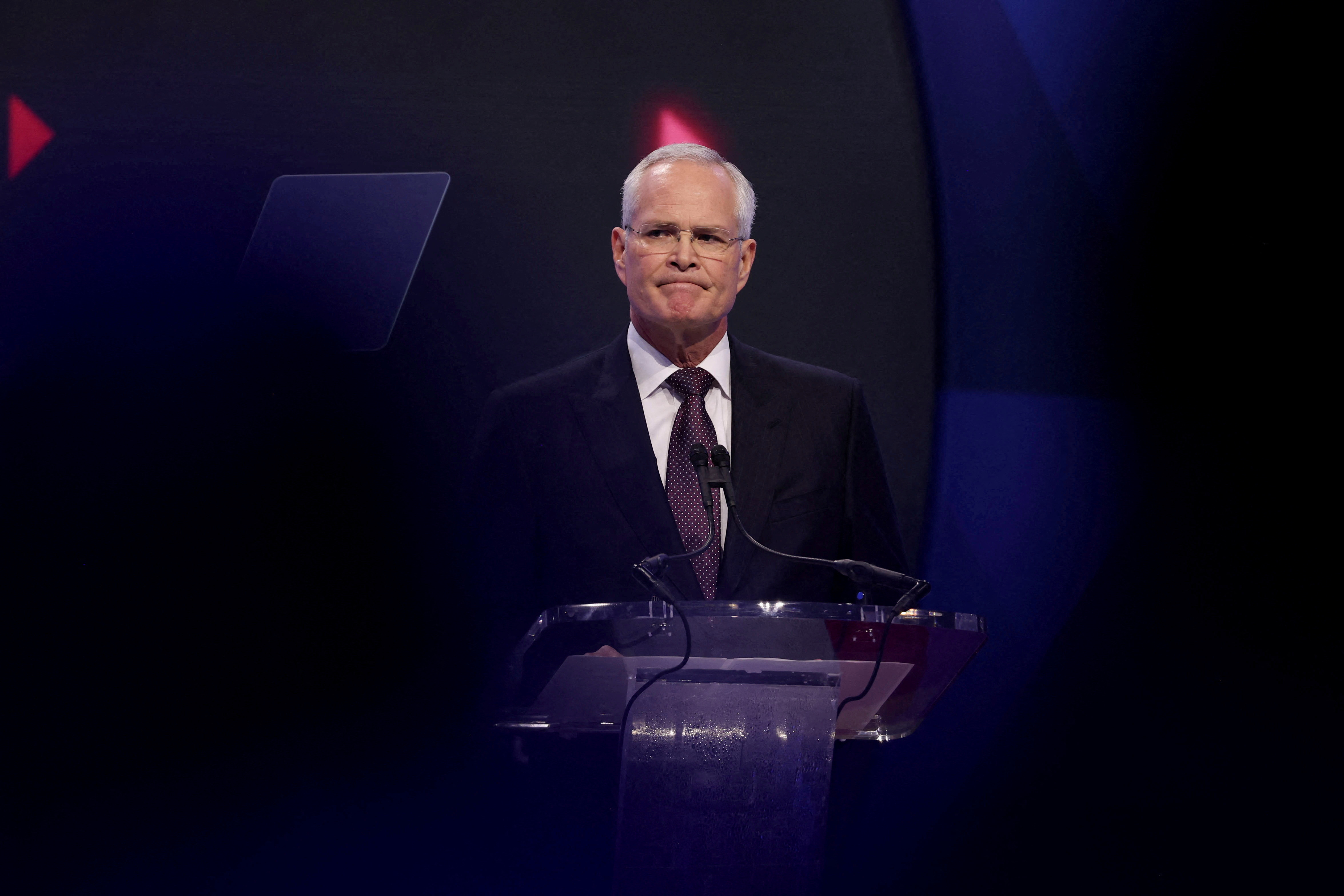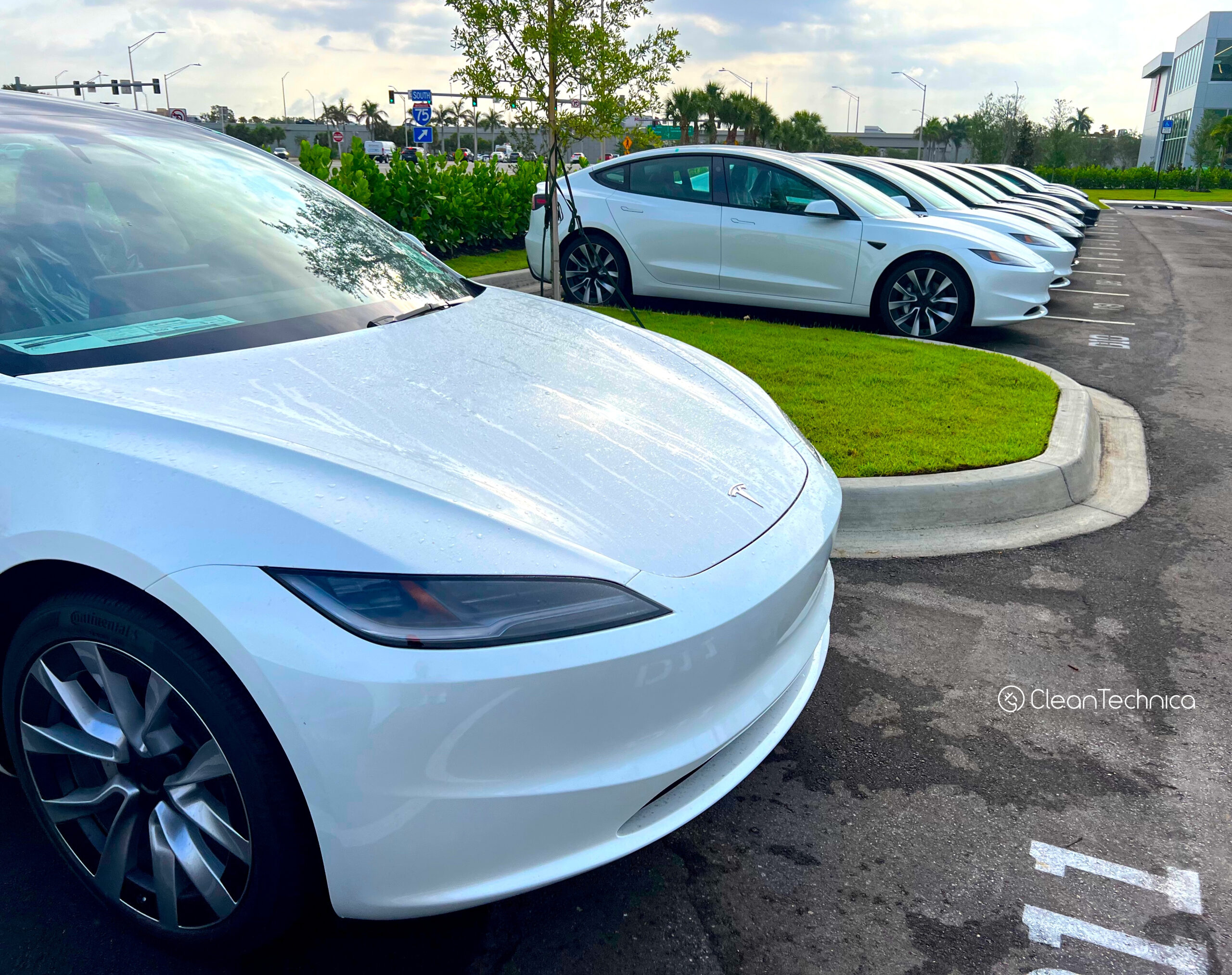
DUBAI, Dec 2 (Reuters) – Exxon Mobil CEO Darren Woods on Saturday rejected the International Energy Agency’s recent claim that using wide-scale carbon capture to fight climate change was an implausible “illusion”, saying the same could be said about electric vehicles and solar energy.
“There is no solution set out there today that is at the scale to solve the problem,” Woods told Reuters on the sidelines of the COP28 climate summit in Dubai.
“So, you could say that about carbon capture today, you could say that about electric vehicles, about wind, about solar. I think that criticism is legitimate for anything that we’re trying to do, to start with,” he said.
While few commercially viable carbon-capture projects exist due to high costs, EVs now make up about 13% of the global new vehicle market, and solar and wind deployments have been expanding rapidly.
Woods’ appearance marked the first time a CEO of fossil fuel giant Exxon has attended one of the annual U.N.-sponsored climate summits, and reflected a growing effort among oil and gas companies worldwide to recast themselves as part of the solution to global warming, as opposed to a cause.
The future role of carbon capture technology and fossil fuels is a key issue at the conference.
The IEA, the West’s energy watchdog, issued a report on Nov. 27 just ahead of the COP28 gathering that said the fossil fuel industry was facing a “moment of truth” where producers had to choose between deepening the climate crisis, or shifting to clean energy.
It slammed oil and gas companies that argue drilling can continue indefinitely as long as the emissions from combusting them are cleaned up, saying the industry was maintaining an “illusion that implausibly large amounts of carbon capture are the solution”.
Exxon has announced $17 billion of investment in its low carbon business, which includes carbon capture, and has argued that greenhouse gas emissions are the problem causing climate change, not the fossil fuels themselves.
He said he believed oil and gas would play an “important role” in the world through 2050, but declined to provide an estimate for demand levels.
As part of Exxon’s low carbon strategy, it announced in July a $4.9 billion acquisition of Denbury and its 1,300-mile (2,100-kilometer) carbon dioxide pipeline network, which will be linked to offshore blocks in the Gulf of Mexico where Exxon plans to bury carbon.
Exxon has so far convinced the largest ammonia maker in the United States, an industrial gas company and a large steel company to ink long-term contracts for carbon reduction services that would cover around 5 million tons of carbon dioxide per year.
Currently, energy and industry produce about 37 billion tons of CO2 per year globally.
Woods declined to provide details of the contracts, but said U.S. subsidies in last year’s Inflation Reduction Act of up to $85 a ton for carbon capture and sequestration would make the investments profitable.
“We’re essentially helping customers decarbonize and taking advantage of that tax credit,” Woods said.
He added that making money from the deals was “probably a few years out.”
Share This:




